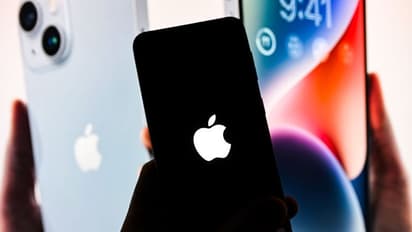US government sues Apple over monopoly of smartphone market

Synopsis
The US Department of Justice on Thursday filed a landmark antitrust lawsuit against Apple, arguing that the iPhone maker has monopolised smartphone markets. In the lawsuit, filed in the District of New Jersey, the Justice Department said Apple used its market power to receive more money from consumers, publishers and others.
The US Justice Department and more than a dozen states filed a blockbuster antitrust lawsuit against Apple on Thursday. In the lawsuit, filed in the District of New Jersey, the Justice Department said Apple used its market power to receive more money from consumers, publishers and others.
The much-awaited lawsuit comes years of accusations from detractors that Apple has hurt competition with its "walled-garden" approach to hardware and software, expensive fees, and restrictive restrictions in the app store: Apple is well known for making its technology user-friendly, but it does it by closely regulating—and occasionally even prohibiting—the ways in which outside businesses can engage with the tech giant's goods and services.
Apple occasionally may provide its own goods with more features and access than those of its rivals. The business said that it will contest the lawsuit's charges and rejected them.
In a news statement, the Justice Department stated that Apple "undermines apps, products, and services that would otherwise make users less reliant on the iPhone." "Apple exercises its monopoly power to extract more money from consumers, developers, content creators, artists, publishers, small businesses, and merchants, among others."
Apple, in a statement, said the lawsuit would hinder its ability to make the compelling and consumer-friendly technology that have made the company one of the most valuable in the world.
This year, European regulations forced Apple to give other companies access to the iPhone’s tap-to-pay hardware chip, enabling the creation of competing digital wallets. But those rules are limited to the European Union. Apple charges a 30% fee on most transactions made through its app store, which is a common complaint from firms that try to offer subscriptions, claiming that Apple's massive dominance of the smartphone market forces them to pay an unduly high commission.
The lawsuit comes as Apple already faces antitrust investigations in Europe and elsewhere.
Find the latest Technology News covering Smartphone Updates, AI (Artificial Intelligence) breakthroughs, and innovations in space exploration. Stay updated on gadgets, apps, and digital trends with expert reviews, product comparisons, and tech insights. Download the Asianet News Official App from the Android Play Store and iPhone App Store for everything shaping the future of technology.